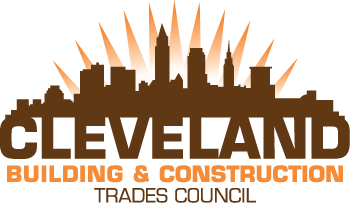New law establishes elevator mechanic license
Elevator constructors who work in the State of Ohio will soon be required to obtain an industry license in order to ply their trade.
On Jan. 2, Ohio Gov. Mike De-Wine signed House Bill 107, which mandated the licensure of elevator mechanics.
The new law will affect the men and women who build, install or service commercial and industrial elevators, escalators and moving walks. The law will not pertain to those who install, maintain and repair residential conveyance systems such as wheelchair lifts and stair climbers.
Based on committee testimony, the regulations will affect between 600 and 1,000 mechanics – both union and non-union.
“This is a big deal,” said Elevator Constructors Local 17 Business Manager John Driscoll, Jr. “The bill had been in the works for over 10 years.”
“I am really pleased with the legislation,” said Kevin Sullivan, Elevator Industry Work Preservation Fund National Coordinator, who helped lead the charge on passage of the bill. “It was long overdue.”
Thanks to the passage of H.B. 107, Ohio became the 38th state in the nation to require elevator mechanic licensing.
The Buckeye State joins neighboring states Kentucky, West Virginia, Michigan and Indiana, that have similar laws on their books.
Both Driscoll and Sullivan contend the bill is not a union versus non-union issue, but a safety issue. It will ensure anyone who works on these apparatuses in the commercial and industrial sector has the training to perform the work properly and safely.
Sullivan said the legislation will grandfather union journeymen into a license, but once they have the license, they will need to complete eight hours of continuing education every year.
H.B. 107 mandates that any new elevator mechanics must complete a registered apprenticeship program as a condition to be licensed. Mechanics not grandfathered in will also have to pass a written test.
The National Elevator Industry Educational Program (NEIEP) will compensate journeymen their hourly rate for the eight hours of training.
H.B. 107 will likely not lead to a large growth in union membership, as most of the Locals in the state already have significant market share.
“This bill will not put any non-union contractors out of work,” Sullivan said. “That’s not what we are trying to do.”
What the bill does is govern who can work on a conveyance system.
“Right now, anyone with a toolbox can start installing an elevator,” Driscoll said, then referencing incidents, such as one at the Miami International Airport, which demonstrated the need to protect the public via legislation.
In early 2020, Miami Dade County inspectors discovered more than a dozen cases of rigged wiring, known as jumpers, that deliberately disabled safety devices, such as automatic shutdowns on elevators, escalators and moving walkways.
In the event of an emergency, with the safety devices disabled, these conveyance systems could not be easily shut off and could lead to an injury or fatality.
While no one was injured or hurt due to disablement of safety devices at the Miami airport, it led the International Union of Elevator Constructors to file a complaint with the Florida Bureau of Elevator Safety about a licensing fraud scheme orchestrated by a non-union elevator contractor, where five non-union mechanics paid their supervisor to take their state mandated licensing tests for them.
Sadly, on Oct. 12, 2021, a mechanic working for this same non-union contractor was crushed by an elevator while working in the elevator pit at a condominium complex in Aventura, Fla. Investigators found the pit stop switch had been disabled via a jumper wire in the controller of the elevator. The mechanic’s death could have been prevented if the safety was not bypassed.
Being an elevator mechanic can be dangerous work and Driscoll thinks requiring all elevator mechanics – both union and non-union – to be licensed will prevent injuries and fatalities.
Sullivan believes that once the program is up and running, the riding public should feel safer.
Under the former law, only elevator inspectors were required to be licensed in Ohio – not those who build, fix or maintain the apparatuses.
Now, H.B. 107 establishes a maximum potential fine of $1,500, a potential jail sentence of up to 30 days or both for those who violate the law and work without a license. Anyone who violates the law will have their license revoked or not be eligible to renew their license.
It also creates the Elevator Safety Review Board within the Division of Industrial Compliance’s Board of Building Standards to investigate violations of the new licensing chapter, hold disciplinary hearings and assess penalties for violations as needed. They will also be tasked to create the licensing process.
Sullivan cautioned that it will likely take several years for the program to get fully up and running.
“We will stay engaged during the next steps of the process,” he said.
According to Driscoll, the next step is for Gov. DeWine to appoint six of the nine members to the Elevator Safety Review Board. Based on the bill, DeWine will get to appoint someone from the trade, which will likely be someone from one of five Local Unions in the state affiliated with the International Union of Elevator Constructors.
Once the board meets, they will begin to chart the course for the next few years and create all the rules and regulations.
